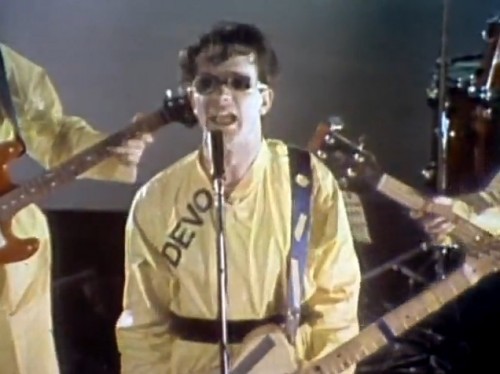

‘You got a fast car / I got a ticket to anywhere / Maybe we can make a deal / Maybe we can get somewhere.’ So sings Tracy Chapman in ‘Fast Car’, a song that presents the thoughts of a young woman who runs away from an abusive alcoholic father only to find herself stuck in a dead-end job with a lover who is not unlike her dad. The tropical house version by Jonas Blue that came out in 2015 speeds it up, turns the acoustic guitar hook into a snaky synth lead and features some semi-helium autotuned singing from Dakota.
For those familiar with the sombre original, the
effect is hilarious - the beleaguered victim now sounds like she’s going out
clubbing with her friends, swigging an alcopop, excited about the night ahead –
it’s wonderfully, carelessly young and the lines ‘I had a feeling that I
belonged / I had a feeling that I could be someone’ now seem like a hymn to
self-realisation through partying. There is something cheering about the fact that
many of those who have come to the song via the cover neither know nor care
what it’s about. Like all the best cover versions, the artist re-makes the
original in his or her own image.
A forerunner of
‘Fast Car’ is The Pet Shop Boys’ bright and airy disco version of ‘Where the
Streets Have no Name’, in which Neil Tennant’s gentle, half-spoken vocal rids
the song of all trace of Bono’s flatulent bombast before segueing into Frankie
Valli’s ‘Can’t Take My Eyes Off You’. Lou Donaldson does something similar on
his cover of ‘approach to ‘Blowin’ in the Wind’, is just as radical, as he
transforms the earnest ballad into a loose and breezy saxophone version instrumental
that reminds the listener that for all the brilliance of the lyrics, the song
would be nothing without that wonderful tune. Almost as thrilling is Bryan Ferry’s camp
re-working of ‘A Hard Rain’s Gonna Fall’ in which he turns ten
monochromatically apocalyptic verses and choruses into air kisses and cocktails
in a bouncy castle bar.
At the other end of
the spectrum, some artists add extra layers of pathos and gravitas to a song. When
the audibly sick Johnny Cash, covering ‘Bridge Over Troubled Water’, croaks
‘When you’re down and out / When you’re on the streets’ in his take on ‘Bridge
Over Troubled Water’, it colours subsequent listens to the original – as pretty
as his voice is, the young Art Garfunkel’s take on those lines suddenly sounds
callow., like a figure of speech rather than an expression of real lived experience.
Cash does something similar on The
Eagles’ ‘Desperado’, his crumbling baritone investing a creaky cliché of a song
with a sense of wounded majesty it hardly deserves.
It would be interesting to hear what Cash might
have done with The Rolling Stones’ ‘Satisfaction’. Listening to his lascivious
vocal, it’s hard to imagine Mick Jagger being unable get some ‘girl reaction’,
even before you see footage of him performing it in front of hordes of
screaming females. Devo’s version feels truer to the sentiments expressed in
the song, and is one of the great musical definitions of sexual frustration – a
coiled spring of agitated metronome guitars and choppy rhythm section topped
with a tuneless, semi-stutter vocal that has none of the lazy swagger of the
original. It is the sound of a young man on the verge of implosion.
There is more edgy
yearning on The Flying Burrito Brothers’ version of ‘To Love Somebody’. but
this is achieved more by way of accident than by design. In a performance that
is little more than a rough demo (unlike the brassy Bee Gees’ brassy original)
Gram Parsons’s quavering voice walks a tightrope between tender and thin but
when his voice cracks on the line ‘I’m just a man / Can’t you tell that’s what
I am’, the effect is spine-tingling. As
desperate as Barry Gibb sounds, thanks to a hard to reach note, Parsons is on a
cliff-edge. According to Barney Hoskyns’s
book Hotel California, the splintered quality that gives Parsons’s singing its
winsome vulnerability was probably due to a heavy cocaine habit. If that is
true, he didn’t snort in vain.
The great cover versions add something new to a song, and make us listen with new ears.
No comments:
Post a Comment